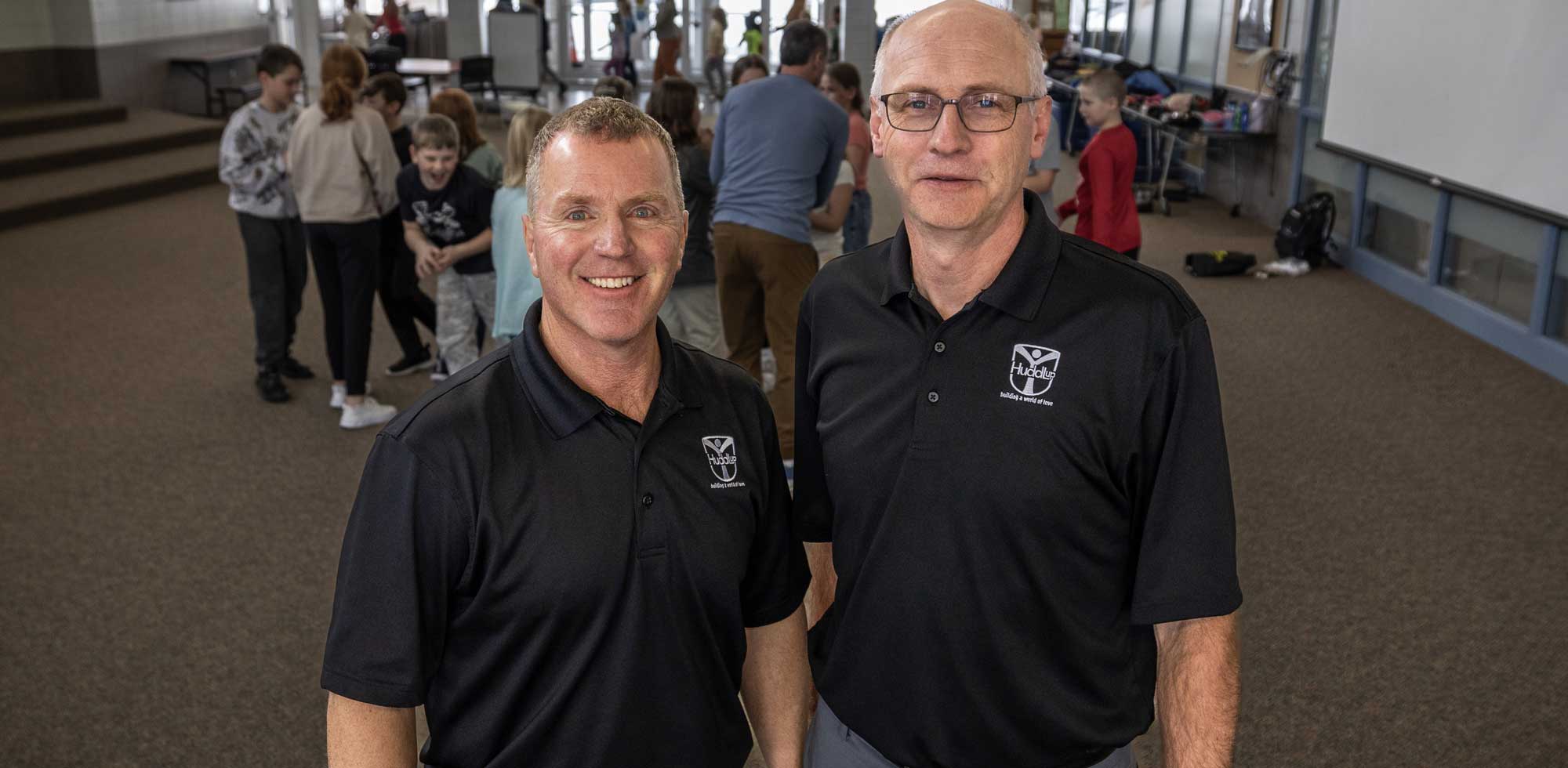
Guidance for Giving
Donor-advised funds create long-lasting, local giving option with meaningful benefits for donors and local grant recipients
By Sara Mohs | Photography by John Linn
When Jane and Patrick Mitchell sit down with their children and grandchildren to talk about the charitable gifts they’d like to make, they’re leading with their heads and their hearts to benefit local youth initiatives, shelters, the arts and more.
“I think one of the key things about the Mitchells’ donation has been the fact that they believe in us,” said Jerry Sparby, founder and executive director of the Yes Network, a St. Cloud-based youth empowerment program that also operates in Cold Spring, Richmond and Sartell.
When the Yes Network developed HuddLUp International (huddlup.org) to address the fear, anxiety, isolation and other symptoms kids were experiencing as a result of the pandemic, the Mitchells were quick to help. “The Mitchells designated their Yes Network donation to our HuddLUp program,” Sparby said. “Their gift provides each classroom with a tub of equipment to play the games we teach each week” in up to 84 area classrooms.
The Mitchells guide their giving through an Initiative Foundation-hosted donor-advised fund. “Once we identify the grants we want to make, we recommend those to the Initiative Foundation,” Patrick Mitchell said. “The ultimate decision is theirs, but they have always agreed with everything we recommend.”
IQ Magazine recently visited with Jane and Patrick Mitchell, Bonnie and John Schlagel and Charlotte Stephens to better understand their motivations to create a donor-advised fund and use it to benefit the causes that matter most to them.
Why did you choose to start a donor-advised fund?
Mitchell: Jane and I had identified some fast-growing, privately held stock that we wanted to donate. We wanted a self-directed fund so we could determine where we wanted the grants to go. If we had made the donations on our own from our checking account and not through the Initiative Foundation, it would be on post-tax dollars. So, we would have to pay tax and then make the donations. This way we’re able to make donations, and there’s no tax on earnings from that fund. In effect, 35 to 40 percent more money can be granted than if we had done it on our own. It’s a huge benefit to everyone involved.
Schlagel: We knew of people whose financial situations changed, such as going through bankruptcy, huge medical bills or stock market crashes. We wanted to ensure that if any of this happened to us, we would still be able to make charitable contributions. Besides helping to ensure you’ll be able to continuously give, it also tends to make you more informed and thoughtful about who you are giving to. You have a specific amount of dollars to donate every year, so you spend more time thinking about who to give to instead of just making spur-of-the-moment decisions.
Stephens: I wanted to start a donor-advised fund to continue supporting local and regional organizations during my lifetime and to know that my gift will continue to support good causes after I’m gone.

Why is it important to you to support local issues and causes?
Mitchell: We’ve been lucky and have been able to send our kids to good schools and live in a good community, and we owe that community in return for what it’s done for us. We want to teach our children and grandchildren that it’s important to give back to the communities that supported us.
Schlagel: Everything takes on more importance when it’s happening in your own community. By the way, it’s important not to let the donor-advised fund blind you into thinking that’s all the money you’ll give every year. If you’re still making some earnings, you can be donating outside of your donor-advised fund.
Stephens: This is where I live, and I see needs that can benefit from support by community members. Providing support for local nonprofit organizations makes this a better community for everyone.
How do you decide on the issues and causes you support?
Mitchell: We work closely with our children and grandchildren to determine where we want the funds to go. We sit down every year and talk about the types of things we want to fund. Our goal is to fund organizations that work with the youth in greater St. Cloud and in Sioux Falls where our families live.
Schlagel: We stay aware of local issues and causes. We also decided that most of our giving from our donor-advised fund would be used to help sustain the existing organizations we were already giving to. It’s not that we don’t give to new organizations and causes, but rather we do that outside of our donor-advised fund.
Stephens: I’ve specified categories of causes that I want to support. I’ve already been supporting some of the nonprofit organizations within these categories, but I will also consider other special needs as they arise.
Why did you choose the Initiative Foundation as the host organization for your donor-advised fund?
Mitchell: I (Patrick) was working with a local attorney who was familiar with the Initiative Foundation, and he recommended that we use that organization. When we interviewed the Initiative Foundation to see if they offered the services we needed to execute our plans, they met all of our objectives. The fund enables us to support local communities and meet our tax objectives, and we’ve been very pleased with the Initiative Foundation. They’re responsive and helpful and we endorse them.
Schlagel: I (John) was on the Initiative Foundation board at the time. I knew they’d do a great job and provide help when needed. We think this is especially helpful if you are an organization that will be doing future fundraising for your donor-advised fund.
Stephens: For many years I was aware of the good work of the Initiative Foundation, so I became a Community Builders Circle Member. The geographic area served by the Foundation includes community organizations that I want to continue supporting. Carl Newbanks and his team were easy to work with, listened to my ideas and explained the options. They provided information and encouragement without pressuring me.
Starting a Fund is Easy
Donor-advised funds are among the easiest to create and maintain. To start a fund, you simply …
- name your fund and its advisers
- contribute assets
- take your immediate tax deductions
- recommend grants to the organizations you choose.
To inquire about starting an Initiative Foundation-hosted fund, contact Carl Newbanks, director of development, at cnewbanks@ifound.org or call (320) 631-2042.